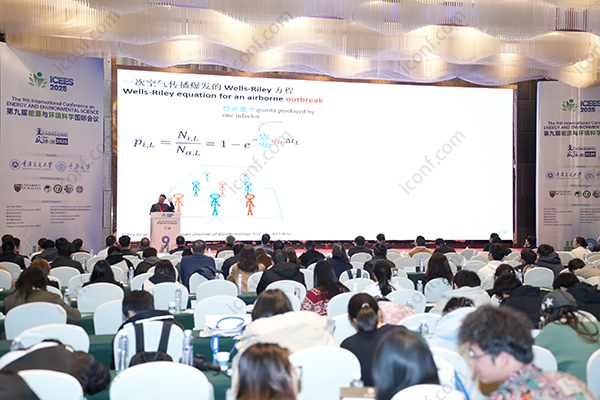

218 views||Release time: Jun 30, 2025
Scientific conferences are a crucial part of academic life, serving as platforms for researchers to present new findings, exchange ideas, and build collaborations across the world. Whether you’re a graduate student, early-career researcher, or an experienced scholar, participating in these conferences offers significant academic and professional benefits.

This guide explains why scientific conferences are important, how to select the right one, and how platforms like iconf.com help researchers find credible, indexed events.
| Benefit | Why It Matters |
|---|---|
| Present New Research | Showcase your findings to peers and experts worldwide |
| Publish in Indexed Proceedings | Many conferences submit accepted papers to EI, Scopus, or SCI, strengthening your academic portfolio |
| Network Globally | Build connections for future collaborations |
| Learn New Trends | Stay updated on emerging methods and technologies |
| Enhance Academic Profile | Gain recognition and support career advancement |
International Conferences: Large-scale events with global participation, often indexed by EI, Scopus, or SCI.
National Conferences: Country-focused, useful for local networking and collaborations.
Workshops and Symposia: Smaller, topic-specific events focused on intensive discussions.
Hybrid and Virtual Conferences: Allow participation without travel, expanding global reach.
When selecting a scientific conference, consider:
Research Field and Topics: Make sure the conference theme aligns with your study area.
Indexing Type: Check if papers are indexed in EI, Scopus, or SCI for added academic value.
Organizer Reputation: Look for reputable societies, universities, or established publishers.
Location and Format: Decide if you prefer in-person networking or virtual flexibility.
Submission Deadlines: Plan early to meet all requirements on time.
Using iconf.com, you can filter conferences by discipline, indexing type, and country, and review detailed information about deadlines and topics. This reduces the risk of submitting to low-quality or predatory events.
Review the Call for Papers (CFP): Check topics, deadlines, and formatting rules.
Prepare Your Manuscript: Follow strict formatting and submission guidelines.
Submit Online: Use platforms like EasyChair, EDAS, or Microsoft CMT.
Peer Review Process: Wait for acceptance or revision feedback.
Register and Present: Once accepted, complete registration and prepare your presentation.
Publication and Indexing: After the conference, papers are published and sent for indexing.
| Format | Advantages | Considerations |
|---|---|---|
| Offline | Strong face-to-face networking | Requires travel and higher costs |
| Online | Cost-effective, accessible worldwide | Limited personal interaction |
| Hybrid | Flexible participation options | Check if presentation mode is supported |
iconf.com offers a dedicated platform to:
Discover verified, high-quality scientific conferences
Check indexing status clearly
Track submission deadlines and conference dates
Access official CFPs and paper templates
Avoid unreliable or predatory events
Whether you’re seeking your first conference or planning annual presentations, iconf.com makes it easier to focus on research awhile managing submission logistics confidently.
Scientific conferences are vital for academic growth and professional development. They provide a unique opportunity to share your work, receive feedback, and connect with experts around the world.
By carefully selecting the right event and using resources like iconf.com, you can maximize the impact of your research and build valuable academic networks.